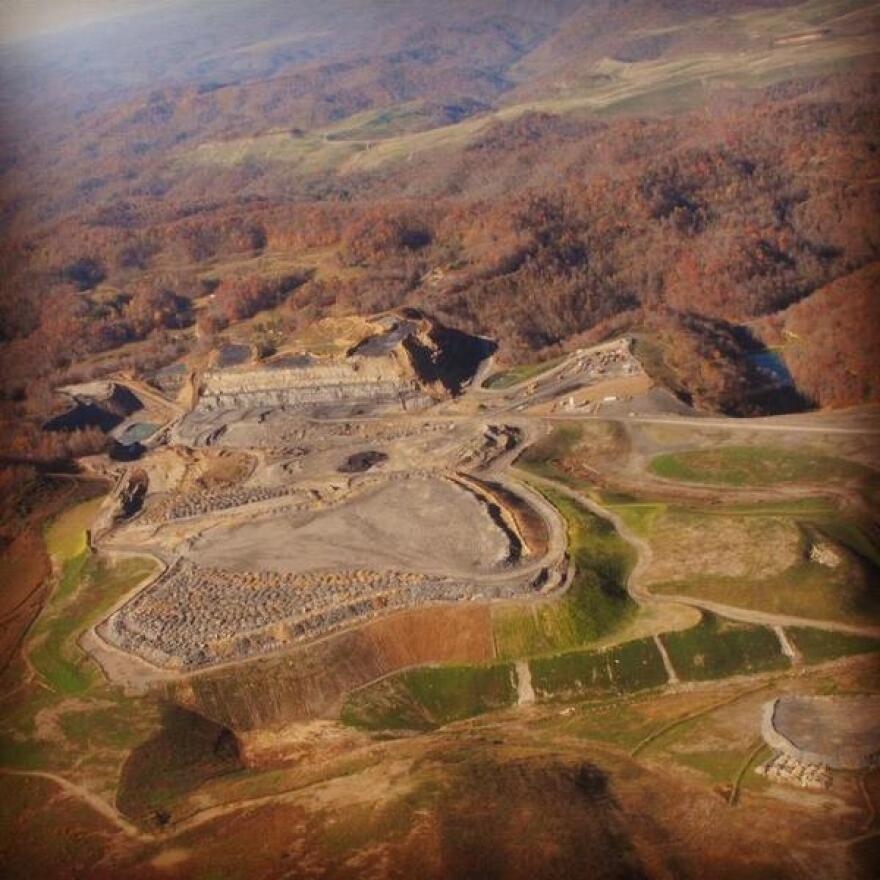There’s no dearth of research on health disparities in Appalachia. But a newly-formed group of researchers at Virginia Tech says there is a dearth of scientific research into why these disparities exist, and how environmental factors could be contributing.
In a literature review published online last month in the journal “Reviews on Environmental Health,” the Virginia Tech researchers call for more community dialogue on the issue, and more focused epidemiological research on environmental health effects in Appalachia.
“It’s because they smoke, it’s because they’re poor, it’s because they’re overweight, it’s because people engage in unhealthy behaviors,” said Virginia Tech biological systems engineering professor Leigh-Anne Krometis, rattling off the list of reasons often given for the poor health of people living in Appalachia.
“And that’s always part of it. But what studies have found is that when you go and do the epidemiological work, if you were going to predict, okay, we have 10 percent greater smoking in this community, we would predict this much more cancer. And what we find is that there’s more than you would expect. So that gap between what you would predict and what you see is unexplained.”
Krometis is part of a new initiative at Virginia Tech looking at ecological and human health in rural communities. The group has a small grant from the university to get started, and is planning to conduct some pilot projects and talk to community members about what public health concerns are possibly linked to environmental factors including those from extractive industries like coal mining, natural gas drilling and logging.
“There’s actually a ton of research on the impacts of all those different practices on aquatic macroinvertebrates and the water and acid rain and its effect on trees, and comparatively little on actual people,” she said.
And of the research that’s been done, there are few conclusions. Part of that is because it’s really expensive to monitor personal exposure to sources like air and water pollution. Instead, Krometis said a lot of researchers have relied on rougher measures, like what county a particular person lives in.
“And there has been a lot of great work,” she said. “But because we know that air and water don’t obey political boundaries like county lines, that doesn’t get at what you’re exposed to.”
For example, a person might live in a non-coal mining county, but be close to a mine just over the county line. Or conversely, someone might live in a coal mining county, but be miles away from the mine’s air and watershed.
Studying health in Appalachia is also complicated by the fact that often, the illness in question is cancer. There’s a lot researchers still don’t understand about the disease, and how various factors contribute.
Krometis said the Virginia Tech team found research documenting disparities on cancer in Appalachia going back to the 1970s, but it’s hard to connect cancer and exposure.
“When the exposure happens and when the cancer develops, there’s a pretty large lag time and every cancer is different,” she said. “So that makes it much more difficult to pinpoint what the problem is. And whether it’s a combination of factors.”
There’s other research underway: the National Academy of Sciences is undertaking a two- year, million dollar study of the health effects of mountaintop removal coal mining. Krometis said that’s promising too, but there are other types of environmental problems in Appalachia that aren’t caused by mountaintop removal. Those include gas drilling, nutrient pollution and access to safe drinking water, and her group hopes to take a broader look.





